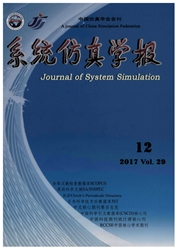

 中文摘要:
中文摘要:
随着计算技术的快速发展,移动终端以其便携和移动的特性越来越多的应用于分布式虚拟环境当中。在支持移动终端的分布式虚拟环境中,切换是体现移动终端交互特性以及移动特性的关键问题。传统的切换策略大多以Received Signal Strength Indication(RSSI)作为是否需要进行切换的唯一依据,但是由于获得RSSI的信道扫描阶段较为耗时不能满足分布式虚拟环境中用户对实时性的要求。针对这个问题,给出了在WLAN环境下支持移动终端的分布式虚拟环境中一种基于用户QoS的切换策略。该方法通过对应用层可检测的特征进行分析,结合用户QoS综合作为信道扫描时机的判定条件。通过减少扫描次数,达到降低扫描延迟的目的,并在扫描/切换过程中采用DR(Dead Reckoning)算法来降低系统延迟造成的用户跳变感。试验证明,该方法较传统的切换策略更为灵活,对系统造成的延迟更小,并能很好的满足用户QoS需求。
 英文摘要:
英文摘要:
With the rapid development of computing technology,mobile devices has become more and more popular in distributed virtual environment (DVE) because of their portable and mobile features.In DVE which support mobile devices,handoff is the key issue to reflecting mobile and interactive characteristics of mobile devices.Most of the traditional strategies use Received Signal Strength Indication (RSSI) as metric.It is not practical to be used in DVE because the probe delay occupies most of the handoff delay time.A handoff method was proposed based on user QoS in DVE over WLAN.Using feature,which can be detected in application layer,and user's QoS as metrics of probing.It can reduce the number of probes to decrease the probe delay in the processing of DVE.In order to make up for non-consecutive flu,dead reckoning arithmetic was taken advantage of to simulate object movement during processing of handoff.Numerical results demonstrate that the proposed approach is more flexible and can reduce probe delay time in the entire operation of DVE.This method can meet user's QoS requirement.
 同期刊论文项目
同期刊论文项目
 同项目期刊论文
同项目期刊论文
 期刊信息
期刊信息
